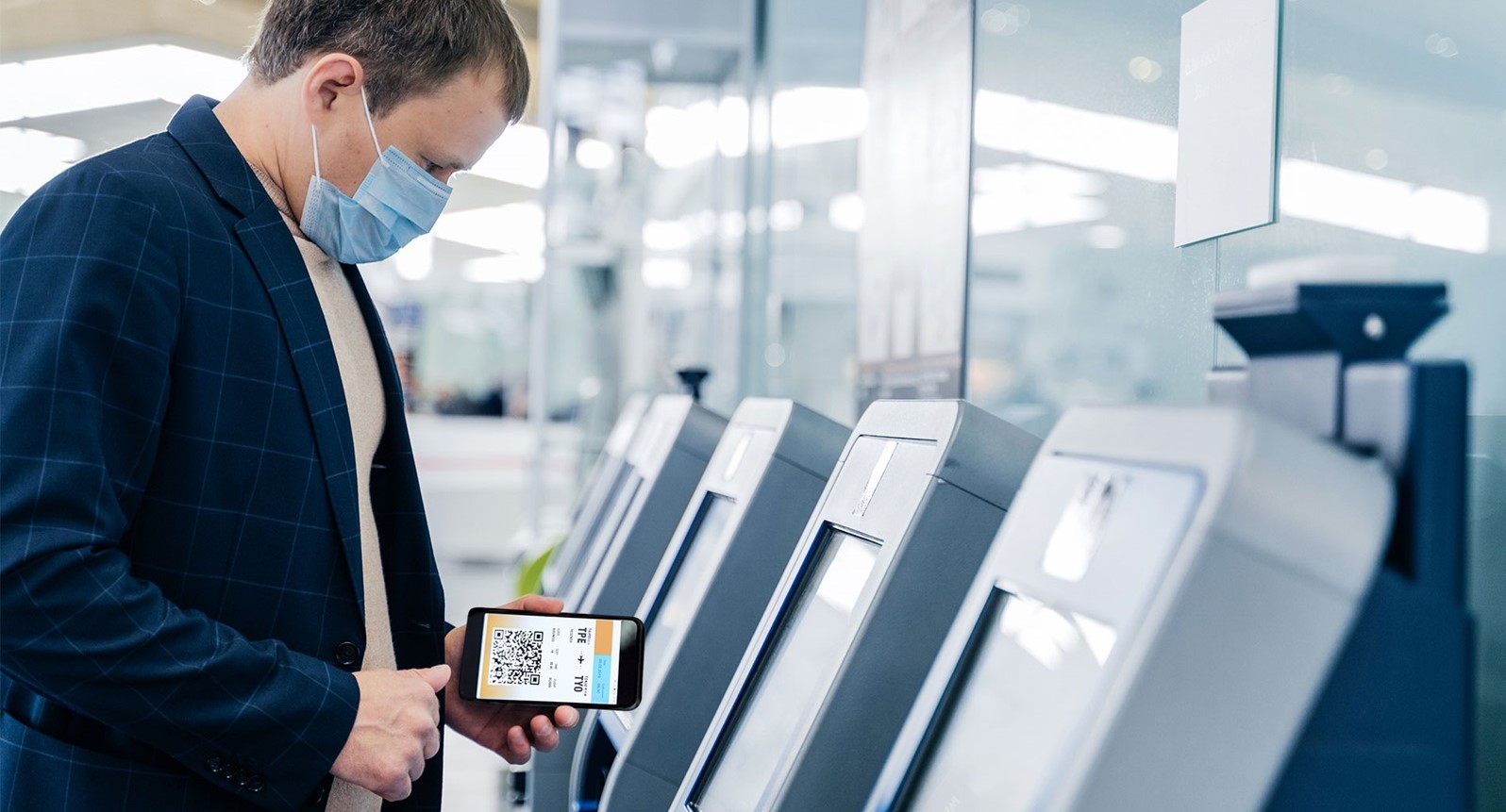For many of us contactless used to mean humanless, as airlines and airports installed self check-in desks, although this generally meant touching a screen to activate. The new form of contactless means exactly that, no contact with anything, human or machine. Just point your phone and proceed.
Eliminating the need for passengers to stand in slow moving lines in close contact with each other is essential in this new world, so making technology work faster and better is the key.
Many airports are now reporting the installation of complete touchless facilities and it really does seem that the most important item for all of us to carry with us now is a fully charged phone. Biometrics are also playing a huge part and even wearing a mask will no longer be a barrier to having your identity confirmed as new technology comes on line.
Collins Aerospace is one of the frontrunners in biometric technology. Their new Kiosk Connect solution provides a full, end-to-end, contactless airport journey. By simply scanning a QR code with a mobile device, a passenger can quickly connect to a common use kiosk using either the airport's public Wi-Fi or the kiosk's built-in Wi-Fi, with no requirement to download any apps.

From there, users complete the check-in process on their phones and produce boarding passes and bag tags without ever touching the kiosk screen.
"When combined with our secure biometric solutions and self-service airport products, this new feature enables travellers to experience a contactless airport journey all the way from check-in to boarding," said LeAnn Ridgeway, vice president and general manager, information management services with Collins Aerospace.
Norwegian airport operator Avinor, which operates 44 airports, has joined forces with Amadeus to trial touchless technology that allows passengers to check in, drop bags, proceed through security and board their flight all from a barcode sent to their mobile device.
The code also acts as a coupon to print bag tags via self-service kiosk at airports, enabling passengers to drop their luggage at self-service units. Avinor already offered touchless boarding at airports, and these latest upgrades make more elements of the journey contact-free.
Beijing Capital Airport has installed SITA's Smart Path to completely automate the passenger journey through the airport. The technology uses a passenger's face to become their boarding pass. Passengers can easily validate their identity with just a quick scan of their face. They can then travel along the entire passenger journey without having to show their passport or boarding pass.
SITA's Smart Path can also be combined with SITA Flex, their mobile enabled technology, to facilitate a low-touch environment for passengers.
Nashville Airport has recently deployed CLEAR, a touchless identity technology for their security checkpoints. The technology uses biometrics to confirm the passenger's identity, replacing the need to pass over a passport or other identification document for inspection.
There are many more examples with more airports introducing new systems daily. One issue that is not quite clear yet is one of data privacy. We all want to have our data and privacy protected but is our need to travel safe from Covid-19 going to mean we have to sacrifice a little security? Governments will need to regulate this issue but as with everything else to date they don't seem to be doing that in any coordinated fashion.
So, charge up that phone, put your best face forward and head for an airport near you.
LEARN MORE... Life after Covid-19 is still a vast unknown however there is no question that aviation will look very different to what we have become accustomed to in recent years. Redefining the new traveller experience in line with health warnings, safety and security is inevitable.
You can find out more about some of the technologies being incorporated into the traveller journey in the most recent CAPA - Centre for Aviation Masterclass where LeAnn Ridgeway, vice president and general manager, information management services at Collins Aerospace; Bruno Fargeon, responsible for 'Keep Trust in Air Travel' project at Airbus; and Céline Canu, head of facilitation at International Air Transport Association (IATA) share their perspectives on redefining aviation in the post Covid-19 world.
You can watch the full CAPA Masterclass session on-demand by clicking here or on the image below.
